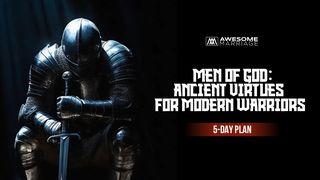The Persian KingsSample

Esther is one of the great heroines of the Bible. Her story is one of courage, risk, danger, and unlikely victory. God, in his invisible sovereignty, orchestrates the events just right, so that he can save his people and get glory for himself.
The curtain rises on Esther’s story, as is the case with many other epic stories, with the central figure of a king. This king’s kingdom stretched from Ethiopia to India, including 127 provinces. As you might imagine, this king wielded an enormous amount of power. They called him Xerxes. Xerxes sounds like it could be a character in a Marvel superhero film. He certainly lived the lifestyle of someone with super powers. Like most superheroes, he also came with a second name: Ahasuerus. This was his title. And still others knew him by another title: Shahanshah, which literally translates as “king of kings.” Depending on who was talking to him, or about him, would determine which name was used.
Yet, regardless of which name was used, his reign sat secure and supreme, situated within the borders of another familiar biblical account. Two familiar biblical accounts, actually. Those of Ezra and Nehemiah.
As in many movies or stage plays, scenes are inserted near the start to provide the audience with what is known as the “backstory.” This backstory nearly always includes what is known as “foreshadowing.” It is here where we uncover the motives behind the characters in the story. It is here where we discover why the conflict we are about to witness even winds up taking place. It is here where our hearts and souls are enlightened as to who is good and who represents evil, and why the two clash.
Esther’s story has a significant backstory as well. During the time of Esther and her king, God was busy working with His people, the Israelites, to usher them back into the place of promise He had given them years before. The Israelites had been removed from this place previously due to their own sins and resultant consequences. Yet when those consequences had run their course, God moved in the hearts of two men named Ezra and Nehemiah to restore what sin had stolen. He began this by instructing the Israelites to return to Jerusalem and rebuild His temple, as recorded in Ezra 1:2, and taking place in the year 538 BC. This occurred during the reign of Cyrus, the first Persian king. To put it on the timeline of Esther, Esther came to power as Queen in 478 BC (roughly sixty years following God’s first instructions to rebuild the temple).
If you enjoy reading about the way God uses His providential hand, click here to download one of Dr. Tony Evans' sermons as our gift to you. We want to thank B&H Publishers for these excerpts from Tony Evans' book "Pathways: From Providence to Purpose, published in 2019.
Scripture
About this Plan

In this 3 day reading plan, Tony Evans provides a descriptive and knowledgeable account of the historical aspects leading up to the book of Esther.
More
We would like to thank The Urban Alternative (Tony Evans) for providing this plan. For more information, please visit:
https://tonyevans.org/
Related Plans

Unmasking Narcissism

Be Still and Know: 7 Days to Recenter Your Heart on God

Overcoming Suffering

Islands, Tides, and the Deep: A Marriage Message From the Sea

Men of God: Ancient Virtues for Modern Warriors

Healing From God

Living With a Strong-Willed Child

From Acceptance to Approval: Living a Life That Pleases the Father

Be Ye Holy: The Holy Spirit's Role in Our Lives
